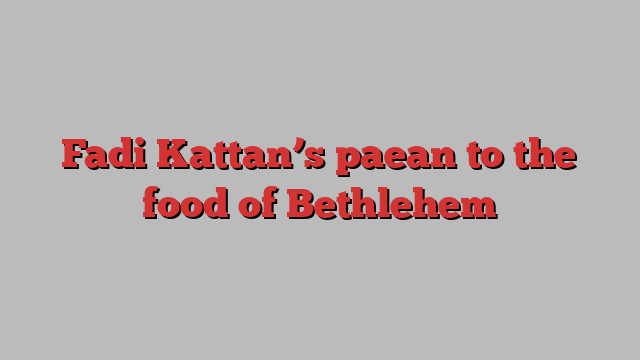
Unlock the Editor’s Digest for free
Roula Khalaf, Editor of the FT, selects her favourite stories in this weekly newsletter.
I’ve come to eat lunch with Franco-Palestinian chef Fadi Kattan at his west London restaurant Akub. On the menu: a selection of dishes from his debut cookbook. I’m wondering if lamb testicles will be among them. Kattan’s sound rather tasty – sliced and sautéed, doused with arak, then finished with lemon juice and salt and served with a spicy tahinia sauce.
Bethlehem: A Celebration of Palestinian Food (Hardie Grant) showcases the flavours, artisans and terroir of the West Bank city that Kattan calls home. Some dishes have been passed down through generations, others are Kattan’s own. These include his take on hummus, his mother’s lentil soup (“a dish I have been striving to make ever since I was a child”), cheese-stuffed grape leaves, tomato-and-parsley topped manakish (flatbread), slow-roasted lamb, braised chard and shawarma. There are other meaty dishes such as shish barek (lamb dumplings) and qidreh (lamb with spiced rice) but the selection is largely vegetarian. “We need to shatter this fantasy of the Arabian feast that requires hours of cooking,” says Kattan.
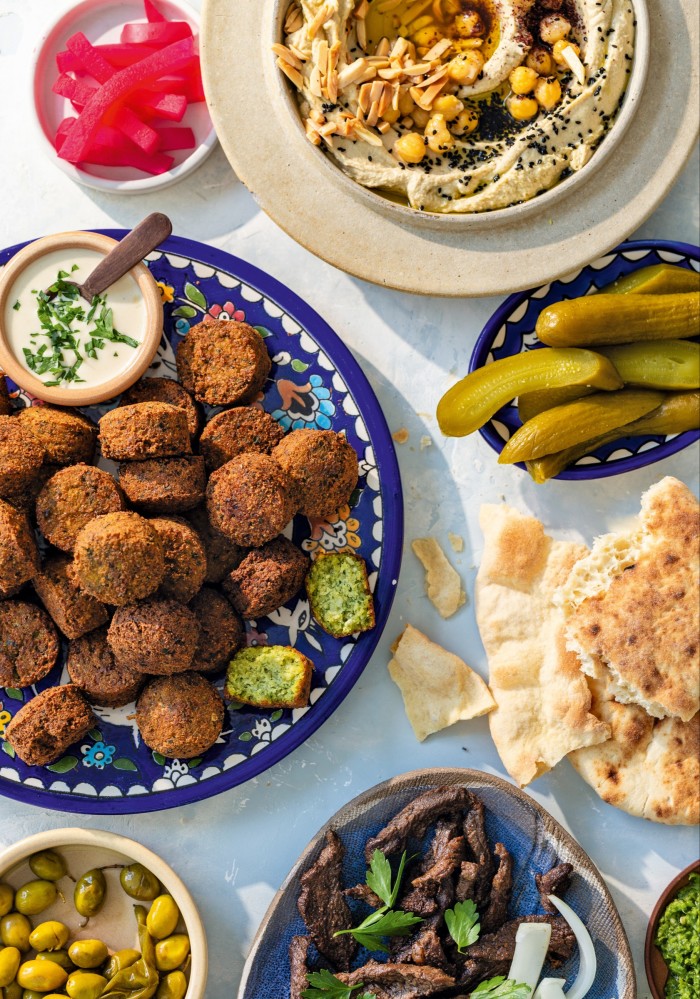
Kattan wanted to include the testicles recipe because it’s his favourite and illustrates the Palestinian tradition for eating nose-to-tail. The playfulness of including them in his first cookbook is not lost on him. “I would be totally happy if people took this recipe to their butcher and said, ‘Can I buy a testicle?’”
Kattan belongs to one of the oldest Christian families in Bethlehem. “There are records dating back to 1738,” he says. Schooled in Jerusalem, he and his family spent many holidays in France, where he developed a taste for gourmet food from a young age. Today, he comes across like a character from a Salman Rushdie novel, a bon viveur whose natural ebullience is tempered by sadness over the plight of his fellow countrymen. He checks X constantly for updates from Gaza and subsists on Gauloises and 15 to 20 espressos a day. “I don’t know if my insomnia is because of the coffee or the coffee is because of the insomnia,” he says.
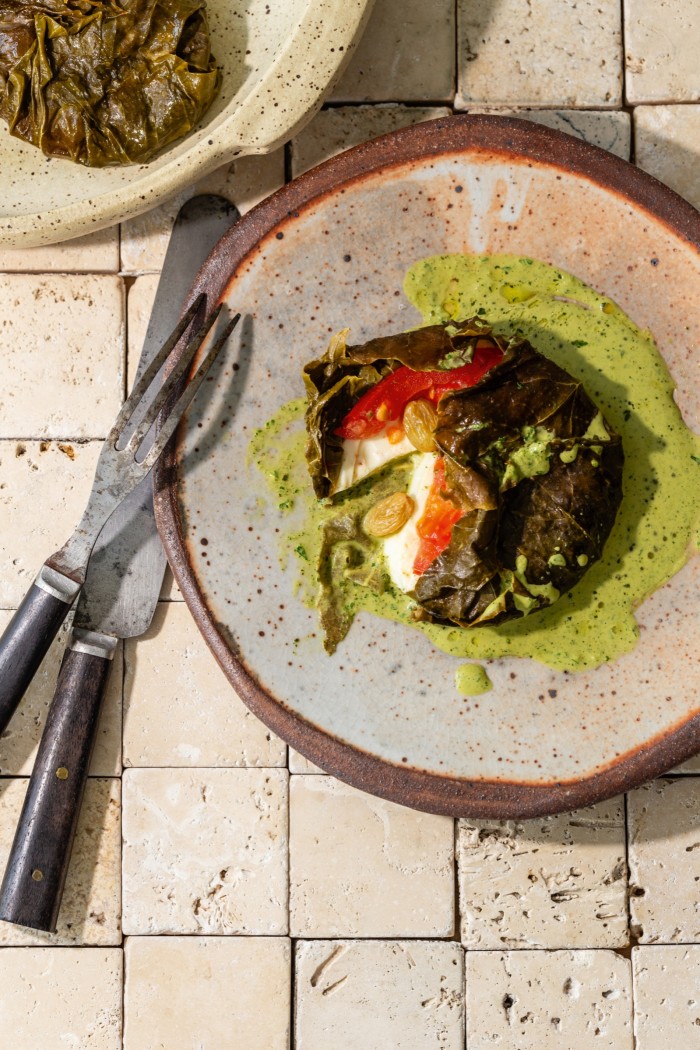
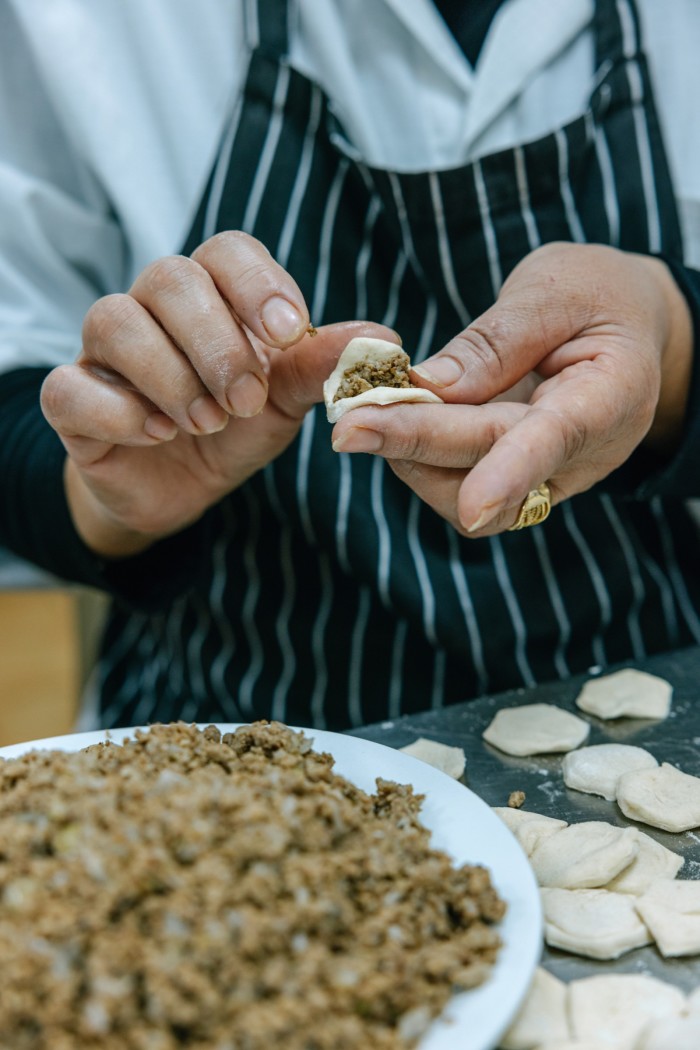
“Politics is part and parcel of life in Bethlehem,” he explains over lunch. Today’s spread includes an assortment of breads (focaccia, pita and zaatar bread) with green and red shatta (hot sauce), labaneh with nigella seeds, qalayet bandoura (reduced tomato stew) with poached eggs, and a freekeh risotto that sings of saffron. “This book is not militant,” he adds, “but I wouldn’t have been honest if I sanitised out anything political.”
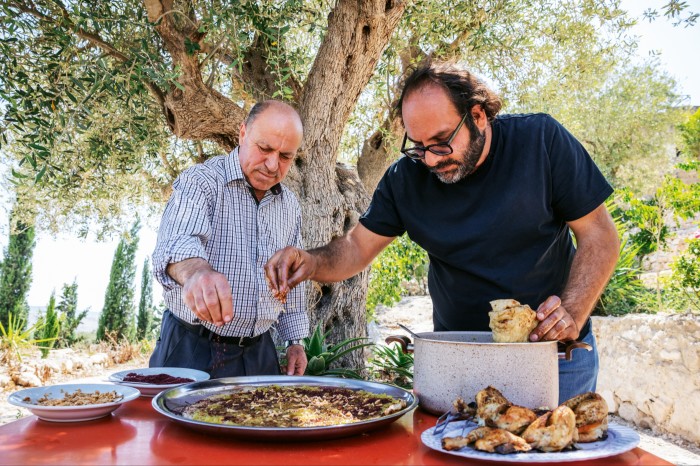
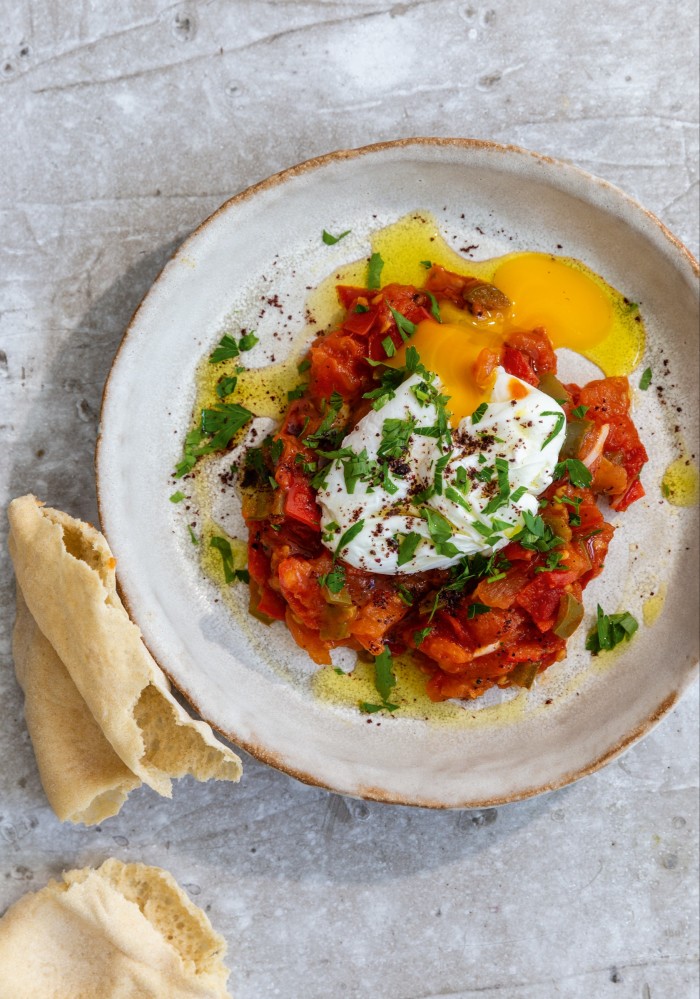
Alongside recipes, he tells the story of his relatives, such as his grandmother Julia, who co-founded the Bethlehem Arab Women’s Union in 1947 (initially as a first-aid centre for those displaced during the Nakba), and who was renowned for her sumptuous Christmas feasts. Her recipe for Christmas cake (based on one by Betty Crocker with extra cinnamon, nutmeg, dried apricots, figs and dates) is included. She taught Kattan about every Palestinian spice and herb and the importance of hospitality. She also wrote a book called Lest We Forget that inspired Kattan to follow suit. He shares recipes for his great-grandmother Mariam’s beef stew and his cousin Hatoum’s lamb stew, which is distinguished towards the end of cooking by the addition of five crushed garlic cloves, one green chilli and the juice of two lemons in a clarified butter drizzle. The generous use of ghee or samneh is a family trait.
Kattan offers the simplest version of most recipes. But in his own kitchen things are rarely simple. When he makes mafghoussa (a squashed courgette salad), he orders 50-60 courgettes to produce three different versions to satisfy his family: a plain version with olive oil that his grandmother used to make (reproduced in the book); another version with yoghurt and pine nuts (served at Akub); and a third with laban jameed (a fermented dried yoghurt) that even some Palestinians would find too pungent. To make labaneh, he urges readers to use cheesecloth. At home he resorts to tipping the yoghurt and salt into old pillowcases to hang over his sink, usually two at a time – Kattan finds they work better than cheesecloth or muslin.
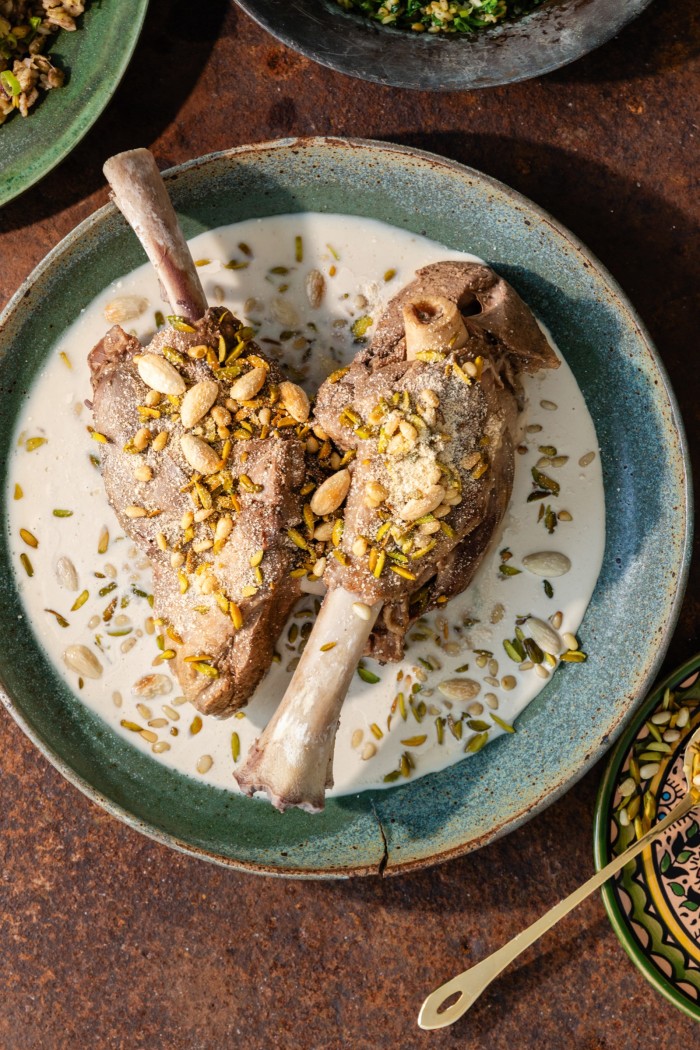
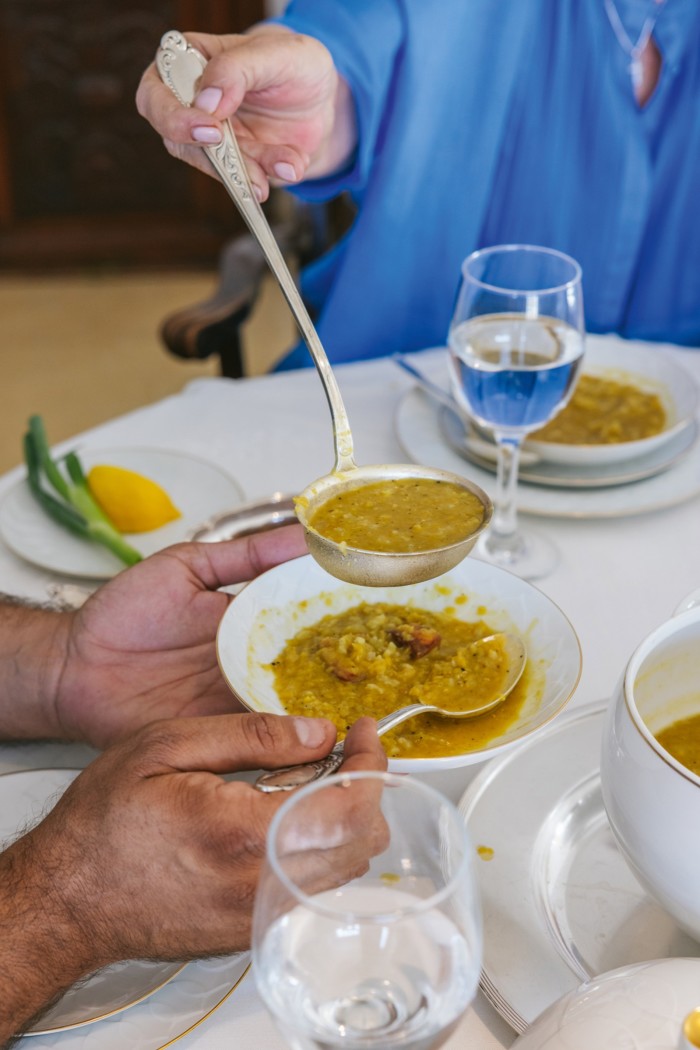
In the book Kattan also introduces traders and suppliers like Um Nabil, from whom he buys herbs and vegetables in Bethlehem market. She is, Kattan writes, “the embodiment of what we call in Arabic sumood, or resilience”. Even a recipe for watermelon salad is ripe with meaning because of the fruit’s association with the Palestinian flag. “I’m unapologetically Palestinian,” he says of his identity, his story and his food. “A lot of non-Palestinians are now very aware of Palestine and a cookbook is an accessible way in. I’ve had fantastic messages from people who want to know more. If the book serves that purpose, I am happy.”
@ajesh34

